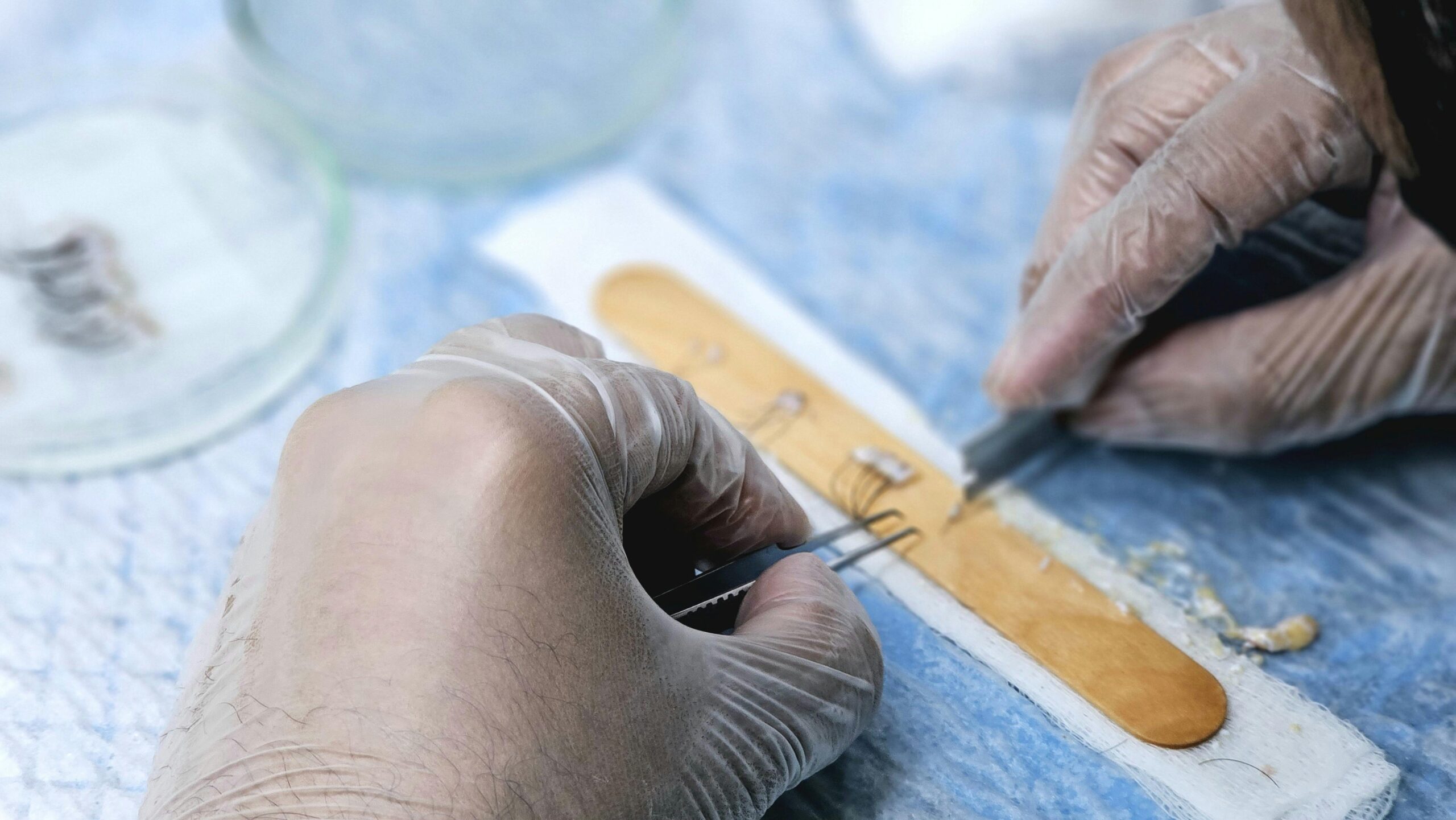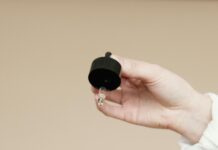Are you considering a hair transplant procedure and wondering how to get ready for this life-changing experience? Preparing for your hair transplant surgery is crucial to ensure the best possible results and a smooth recovery. Many people overlook the importance of pre-surgery care, but with expert tips, you can maximize the success of your treatment. Have you ever asked yourself, “What should I do before a hair transplant?” or “How to prepare for a hair transplant to avoid complications?” This comprehensive guide will answer all your burning questions and reveal insider secrets that top clinics recommend. From understanding the essential pre-hair transplant preparation steps to choosing the right clinic, every detail matters. Did you know that factors like diet, medications, and lifestyle habits can dramatically affect your healing process? Don’t miss out on discovering the best hair transplant preparation tips that can help you achieve natural-looking results. Whether you are looking for FUE hair transplant preparation or cost-effective hair transplant readiness advice, this is your go-to resource. Stay tuned to learn powerful strategies that will transform your hair restoration journey and boost your confidence like never before!
Top 7 Expert Tips to Prepare for Your Hair Transplant Procedure Successfully
Hair transplant procedures are becoming more popular in New York and across the world, as many people seek a permanent solution for hair loss. But before you get excited and book your appointment, it’s very important to prepare yourself properly. How to prepare for your hair transplant procedure? It’s not just about showing up on the day; your readiness can affect the outcome a lot. Here are the top 7 expert tips to help you get ready and make sure your hair transplant goes smooth and successful.
1. Understand the Different Types of Hair Transplants
Before diving into preparation, you must know what kind of transplant you are getting. The two main types are Follicular Unit Extraction (FUE) and Follicular Unit Transplantation (FUT). FUE involves extracting individual hair follicles from the donor area, usually the back of your head, while FUT takes a strip of scalp from the donor site.
Comparison Table:
| Aspect | FUE | FUT |
|---|---|---|
| Scarring | Minimal, tiny dot scars | Linear scar |
| Recovery Time | Faster | Slower |
| Cost | Usually higher | Usually lower |
| Procedure Duration | Longer | Shorter |
Knowing this helps you prepare mentally and physically for what to expect.
2. Stop Smoking and Avoid Alcohol
One of the biggest mistakes patients make is not quitting smoking and alcohol before their transplant. Smoking reduces blood flow to the scalp, which impacts healing and hair growth after the procedure. Alcohol thins your blood and increases bleeding risk during surgery.
Experts recommend stopping smoking and alcohol at least 2 weeks before the operation. This simple change can improve your chances of a successful transplant tremendously.
3. Avoid Certain Medications and Supplements
Certain medicines and supplements can increase bleeding or interfere with anesthesia. Common ones to avoid include:
- Aspirin and ibuprofen
- Blood thinners like warfarin
- Vitamin E supplements
- Herbal supplements like ginkgo biloba or ginseng
Make sure you tell your doctor about all medications and supplements you take. They will advise you which ones to stop and when to restart after the procedure.
4. Prepare Your Scalp and Hair Properly
Good scalp health is crucial. Wash your hair thoroughly on the morning of surgery using a mild shampoo. This removes dirt, oil, and build-up that might interfere with the operation.
Avoid any hair products like gels, sprays, or conditioners on the day of surgery. Also, if your hair is very long, consider trimming it slightly so the surgeon can work more efficiently.
5. Arrange Transportation and Post-Procedure Care
After the transplant, you might feel tired or drowsy because of the sedation or anesthesia. It’s recommended to arrange for someone to drive you home. Also, plan for someone to assist you for the first 24 hours especially if you live alone.
Prepare your home with easy-to-eat meals, pillows to keep your head elevated, and any medications prescribed by your doctor. Having a comfortable resting place will help you recover better.
6. Follow the Pre-Surgery Instructions from Your Clinic
Every clinic has specific guidelines tailored to their procedure style and patient needs. It might include fasting for a certain number of hours before surgery, wearing loose clothes, or avoiding caffeine.
In New York, clinics like ours provide detailed instructions that patients often overlook. Following these instructions strictly can help reduce complications and improve healing.
7. Manage Your Expectations Realistically
Hair transplants have come a long way since their early days in the 1950s, when results were often unnatural-looking plugs. Modern techniques produce much more natural hairlines, but results still take time to show.
Usually, new hair growth begins after 3 to 4 months, with full results visible after 12 to 18 months. Understanding this timeline helps you stay patient and not get discouraged if you don’t see instant changes.
To summarize, preparing for a hair transplant in New York involves several important steps—from understanding your procedure type, quitting smoking and alcohol, stopping certain medications, to managing expectations about results. By following these expert tips, you boost the chances that your hair transplant will be successful and your recovery smooth. Remember, hair restoration is a journey, not a quick fix, but with proper preparation, you’re already on the right path. So start getting ready today and look forward to a fuller head of hair tomorrow!
How to Get Ready for a Hair Transplant: Essential Pre-Procedure Checklist
Getting ready for a hair transplant is something many people don’t think deeply about until the day before the procedure. But actually, preparing well ahead of the surgery can make a huge difference in how smoothly everything goes and how good your results turns out. If you’re in New York and planning to visit a hair transplant clinic, knowing how to prepare for your hair transplant procedure is key to feeling confident and reducing stress. This article shares essential pre-procedure tips, expert advice, and useful checklists to help you get ready for your hair transplant without confusion.
Why Preparation Matters for Hair Transplant Success
Hair transplant, historically known as a solution for hair loss, has evolved tremendously since its early days in the 1950s. Back then, the techniques were primitive and often left unnatural looks. Today, advanced methods like Follicular Unit Extraction (FUE) and Follicular Unit Transplantation (FUT) provide natural results, but the success still depends a lot on how you prepare. Poor preparation can lead to complications like infection, poor graft survival, or prolonged recovery time.
For example, smoking or drinking alcohol before surgery can reduce blood flow to the scalp and affect healing, but many people overlook this. Also, taking certain medications unknowingly can interfere with the procedure. So, understanding how to get ready for a hair transplant is more than just showing up at the clinic on time.
Essential Pre-Procedure Checklist for Your Hair Transplant
Below is a simple checklist that covers the basics you should do before your hair transplant day:
- Avoid Alcohol and Smoking: Stop drinking alcohol and smoking at least one week before the procedure.
- Medication Disclosure: Inform your doctor about all medicines and supplements you take.
- Hair Washing: Wash your hair thoroughly on the morning of the surgery.
- Avoid Blood Thinners: Medicines like aspirin or ibuprofen should be avoided unless your doctor says otherwise.
- Healthy Diet: Eat a balanced meal before the procedure to keep energy up.
- Clothing Choice: Wear comfortable clothes that don’t need to be pulled over your head.
- Arrange Transport: Have someone to drive you home after the surgery.
- Rest Well: Get a good night sleep before the day of surgery.
Expert Tips on How To Prepare For Your Hair Transplant Procedure
Experts in New York hair transplant clinics often give some practical advice that many patients find helpful but sometimes forget:
- Stop Chemical Treatments: Hair dyes, perms, and relaxers should be avoided at least two weeks before surgery to prevent scalp irritation.
- Hydrate Properly: Drink plenty of water in the days leading to the procedure but avoid excessive caffeine.
- Avoid Sun Exposure: Protect your scalp from direct sunlight as sunburn can complicate the transplant.
- Plan Your Schedule: Take a few days off work after the procedure for recovery.
- Ask Questions: Don’t hesitate to clarify doubts about medications, care, or expectations with your surgeon.
- Mental Preparation: Understand that results take time and initial redness or swelling is normal.
Comparing FUE and FUT: Does Preparation Differ?
Hair transplant primarily done with two main techniques – FUE and FUT – have slightly different preparation needs:
| Preparation Aspect | FUE (Follicular Unit Extraction) | FUT (Follicular Unit Transplantation) |
|---|---|---|
| Shaving Required | Usually requires shaving donor area | Partial shaving; strip area is trimmed |
| Healing Time | Faster healing with tiny scars | Longer recovery due to strip removal |
| Post-Op Care | More delicate care for tiny extraction points | Care for larger wound and stitches |
| Activity Restriction | Less restrictive, can resume activities sooner | More restrictive for 1-2 weeks |
Knowing which technique your doctor plans to use can help tailor your pre-procedure steps better.
Practical Examples of Preparing For Hair Transplant
Imagine John, a patient from Manhattan, who waited until the last minute to stop smoking before his surgery. He noticed slower healing and discomfort after his procedure. On the other hand, Maria from Queens followed all pre-op instructions carefully, avoided alcohol, stopped blood thinners, and got plenty of rest. Her recovery was smooth and her results looked natural within months.
These examples show how even small changes in preparation affect outcomes.
Final Thoughts on Preparing for Your Hair Transplant in New York
Getting ready for your hair transplant procedure involves more than booking an appointment. It’s about understanding the process, following expert advice, and taking care of your body before the big day. Whether you choose FUE or FUT, the key is to reduce risks and optimize your body for healing. Remember, your hair transplant clinic in New York is there to guide you, so keep open communication and plan ahead
What to Expect Before Your Hair Transplant: Proven Strategies for Optimal Results
Getting a hair transplant is a big step for many people looking to restore their hair and confidence. But before you sit in the clinic chair, there are many things you should know and do to make sure your procedure goes smoothly and gives you the best possible result. If you are wondering what to expect before your hair transplant, or how to prepare for your hair transplant procedure, this article bring you some proven strategies and expert tips that can help.
What to Expect Before Your Hair Transplant: The Basics
Hair transplantation is a surgical procedure where hair follicles are taken from one area of your scalp (usually the back or sides) and transplanted to the balding or thinning areas. This method been around since the 1950s, evolving from simple plug grafts to the more advanced Follicular Unit Extraction (FUE) and Follicular Unit Transplantation (FUT) techniques used today.
Before your surgery day, expect to have a consultation with a hair transplant specialist. During this visit, the doctor will examine your scalp, discuss your medical history, and talk about your expectations. You should also understand the timeline for hair growth after the transplant, which usually shows visible improvement starting around three to four months, with full results often seen at about 12 months.
How To Prepare For Your Hair Transplant Procedure: Expert Tips You Should Follow
Preparation is key to a successful hair transplant. Here are some practical steps you need to take before your appointment:
- Stop smoking at least 1-2 weeks before the surgery. Smoking can reduce blood flow to the scalp and slow the healing process.
- Avoid alcohol consumption at least 3 days prior. Alcohol thins your blood and may increase bleeding during the procedure.
- Refrain from taking blood-thinning medications or supplements (like aspirin, ibuprofen, or vitamin E) 1 week before surgery, but always consult your doctor first.
- Wash your hair thoroughly on the day of the surgery with a mild shampoo. Clean scalp makes the procedure easier and reduces infection risk.
- Wear comfortable, loose-fitting clothing, ideally something that buttons or zips in the front to avoid pulling clothes over your head after the transplant.
- Avoid caffeine on the day of surgery to reduce the risk of jitters or increased blood pressure.
Practical Examples of Pre-Op Instructions
Imagine John, a patient scheduled for a hair transplant next month. His doctor told him to stop smoking two weeks prior. John also stopped taking his daily fish oil supplements a week before surgery and avoided beer on weekends leading up to the procedure. On the morning of his surgery, he washed his hair and put on a button-up shirt. These simple steps contributed to a smoother surgery and recovery.
Proven Strategies to Optimize Results Before Surgery
Besides the basic preparations, there are some lesser-known but effective strategies that you could use to get the most out of your hair transplant.
Nutrition Optimization: Eating a balanced diet rich in vitamins A, C, D, E, zinc, and iron helps your scalp stay healthy and promotes better healing after surgery.
Hydration: Staying well-hydrated helps your blood flow and tissue repair, which are crucial for graft survival.
Scalp Massage: A gentle scalp massage before surgery can increase blood circulation. But avoid harsh treatments like chemical dyes or perms in the weeks before your procedure.
Stress Reduction: High stress levels may negatively impact hair growth. Techniques such as meditation, yoga, or light exercise can help calm your mind and body.
Comparison of FUE vs FUT Preparation Differences
| Preparation Aspect | FUE (Follicular Unit Extraction) | FUT (Follicular Unit Transplantation) |
|---|---|---|
| Shaving Required | Usually, the donor area is shaved fully or partially | Usually, no need to shave entire head, just strip area |
| Healing Time | Generally faster | Slightly longer due to linear scar |
| Physical Activity | Avoid for 3-5 days | Avoid for 7-10 days due to wound healing |
| Scarring | Tiny dot scars, less visible | Linear scar, more visible |
Outline of Steps to Take the Week Before Your Hair Transplant
- Day 7: Stop using all blood thinners and supplements (after doctor approval).
- Day 5: Avoid alcohol and smoking completely.
- Day 3: Begin eating nutrient-rich meals with focus on protein and vitamins.
- Day 2: Refrain from strenuous exercise or activities that cause sweating.
- Day 1: Wash hair thoroughly, get a good night’s sleep.
What Not To Do Before a Hair Transplant
- Do not use hair styling products like gels or sprays on the day of the procedure.
- Avoid tanning or sunburn on your scalp at least a week prior.
- Don’t skip your consultation or
Step-by-Step Guide: How to Prepare Your Scalp and Body for a Hair Transplant Surgery
Step-by-Step Guide: How to Prepare Your Scalp and Body for a Hair Transplant Surgery
Getting a hair transplant is an exciting step for many people looking to restore their hair and confidence. But, before you rush into it, you gotta prepare your scalp and body properly. Skipping this part, well, it can mess up your results or make recovery harder. So, here’s a guide on how to prepare for your hair transplant procedure, with tips from experts and things you might not have thought about.
Why Preparing Your Scalp and Body Matters
Hair transplant surgery isn’t just about the operation day. Your body and scalp condition before the surgery affects how well your new hair will grow, and how quickly you heal. Historically, surgeons noticed that patients who don’t follow prep instructions tend to have more swelling, infections, or less successful graft survival. Also, your overall health plays a big role in the outcome. It’s not only about the surgeon’s skills, but how your body can handle the trauma and heal afterwards.
Steps to Prepare Your Scalp Before Surgery
Stop Using Hair Products
At least 2-3 days before the surgery, don’t use gels, sprays, oils, or any styling products. They can clog pores and increase infection risk.Wash Your Hair Thoroughly
On the day of the surgery, wash your hair with a mild shampoo. This removes dirt, oil, and bacteria from your scalp.Avoid Sun Exposure
Sunburnt scalp is no good. If you’ve been out in the sun, make sure your scalp is healed and not irritated before surgery day.Don’t Shave Your Head Unless Told
Some clinics prefer you to come with hair, while others might ask you to shave. Clarify this with your surgeon.Avoid Hair Coloring or Chemical Treatments
Chemicals can irritate the scalp or affect skin sensitivity, so avoid dying or perming hair for at least 2 weeks before.
How to Prepare Your Body for Hair Transplant Surgery
Your body needs to be in good shape to help your scalp heal faster. Here’s what you should do:
Avoid Alcohol and Smoking
Alcohol thins your blood and can cause more bleeding during surgery. Smoking reduces blood flow, slowing healing. Avoid both for at least one week before surgery.Stay Hydrated
Drink plenty of water days before the procedure. Hydrated skin heals better and helps your body cope with surgery stress.Eat a Balanced Diet
Foods rich in vitamins A, C, E, and minerals like zinc help tissue repair. Include fruits, vegetables, nuts, and lean proteins in your meals.Sleep Well
Try to get 7-8 hours of sleep nightly. Rest improves your immune system and prepares your body for the procedure.Avoid Blood Thinners
Medications like aspirin or ibuprofen can lead to excessive bleeding. Check with your doctor about stopping any blood-thinning meds before surgery.
What to Do the Day Before Your Hair Transplant
Avoid Heavy Exercise
Physical strain increases blood pressure and might cause swelling post-surgery.Prepare Comfortable Clothing
Wear loose, button-down shirts on surgery day to avoid pulling clothes over your head.Arrange Transportation
You might feel tired or groggy after the procedure, so have someone drive you home.
Comparison Table: Do’s and Don’ts Before Hair Transplant Surgery
| Do’s | Don’ts |
|---|---|
| Wash hair with mild shampoo | Use hair styling products |
| Stay hydrated | Consume alcohol or smoke |
| Get enough sleep | Take blood-thinning medications |
| Eat nutrient-rich foods | Over-exercise or strain yourself |
| Follow surgeon’s instructions | Ignore symptoms like scalp irritation |
Practical Tips from Experts
Dr. Samuel Lee, a hair restoration specialist in New York, emphasizes, “Patients often underestimate how much their lifestyle affects surgery success. Preparing your scalp and body isn’t just a formality, it’s a key part of the process.” He also recommends avoiding caffeine on the day of surgery, since it might increase anxiety or blood pressure.
Another tip is to bring a scarf or hat for after the procedure, especially during colder months. Your scalp will be sensitive and need protection from the environment.
Historical Context: How Hair Transplant Prep Has Evolved
Back in the 1950s, hair transplants were much more rudimentary, and patient prep was minimal. This led to many failures and poor outcomes. Over decades, as techniques improved (like FUT and FUE methods), doctors learned that patient prep greatly improved graft survival and healing. Today, clinics in New York provide detailed prep guides because they know it impacts the surgery
Must-Know Precautions and Lifestyle Changes Before Your Hair Transplant Procedure
Getting ready for a hair transplant in New York can be both exciting and a bit nerve-wracking. You probably heard a lot about the procedure itself, but what about the steps you should take before you actually sit in the clinic chair? Preparing well for your hair transplant is just as important as the surgery. It affects the results and how quickly you heal afterward. So, if you’re thinking “How to prepare for your hair transplant procedure?” or want some expert tips, you came to the right place. This article will break down the must-know precautions and lifestyle changes that can make your experience smoother and your results better.
Why Preparation Matters for Hair Transplant
Hair transplant is not a new concept. It dates back to the 1930s when Dr. Okuda in Japan first experimented with hair grafting techniques. Since then, technology and methods have improved a lot, but the success of the operation still depends on several factors — including how you prepare. If you go into the procedure without proper care, you can face complications like excessive bleeding, infections, or poor graft survival. Plus, your body needs to be in an optimal state to support healing.
Must-Know Precautions Before Your Hair Transplant Procedure
There are some basic, but crucial precautions you have to take before the day of surgery. Doctors in New York clinics often recommend these to patients:
- Avoid alcohol at least one week before surgery. Alcohol thins your blood and can increase bleeding during the procedure.
- Stop smoking at least two weeks prior. Smoking reduces blood flow to the scalp and slows down healing.
- Refrain from taking aspirin, ibuprofen, or any anti-inflammatory medicines 10 days before. These drugs can cause more bleeding.
- Avoid caffeine on the day of surgery as it might increase blood pressure and cause jitters.
- Don’t color or chemically treat your hair a few weeks before surgery. This prevents scalp irritation and ensures the scalp is healthy for grafting.
- Inform your surgeon about all medications and supplements you are taking — some can interfere with anesthesia or healing.
Lifestyle Changes That Help You Prepare Effectively
Beyond medical precautions, your daily habits plays a role too. Here are some lifestyle adjustments that can improve your hair transplant outcome:
- Improve your diet: Eat nutrient-rich foods that support hair and skin health. Vitamins A, C, D, E, zinc, iron, and omega-3 fatty acids are particularly important.
- Stay hydrated: Drink plenty of water daily to keep your scalp hydrated and ready for surgery.
- Manage stress: Stress can impact your immune system and hair growth negatively. Practice meditation, yoga, or simple breathing exercises.
- Get enough sleep: Sleeping well helps your body repair and regenerate tissues faster.
- Exercise moderately: Regular but not intense exercise improves blood circulation. Avoid heavy workouts a few days before surgery to prevent sweating and inflammation.
How To Prepare For Your Hair Transplant Procedure: Expert Tips from NYC Clinics
Hair transplant specialists in New York offer some very practical advice to patients preparing for the procedure. Combining these tips with your doctor’s specific instructions will make sure you’re set for success.
- Wash your hair thoroughly on the morning of the procedure. Use a mild shampoo because a clean scalp reduces risk of infection.
- Wear comfortable clothing that doesn’t need to be pulled over your head. A button-down shirt or zip-up jacket is ideal.
- Arrange transportation because you might feel drowsy after local anesthesia or sedation.
- Minimize caffeine and sugar intake on surgery day to avoid jitteriness.
- Avoid applying oils, gels, or sprays to your hair before coming to the clinic.
- Prepare your home for the recovery phase. Have soft pillows to keep your head elevated while sleeping and easy-to-prepare meals.
Comparison Table: Preparation Do’s and Don’ts
| Do’s | Don’ts |
|---|---|
| Do stop smoking 2 weeks before | Don’t consume alcohol 1 week before |
| Do inform your surgeon about meds | Don’t take aspirin or ibuprofen 10 days prior |
| Do eat a balanced, nutritious diet | Don’t dye or chemically treat hair 3 weeks prior |
| Do wash hair with mild shampoo on day | Don’t apply hair products before surgery |
| Do arrange for transport post-op | Don’t wear tight or pullover clothing |
| Do get enough rest before surgery | Don’t ignore signs of illness or infection |
Practical Example: A Typical Pre-Surgery Checklist
Here is what a patient might check off in the week leading up to their hair transplant:
- 14 days before: Stop smoking, reduce caffeine intake.
- 10 days before: Discontinue aspirin and anti-inflammatory meds.
- 7 days before: Avoid alcohol completely.
Conclusion
Preparing for your hair transplant procedure involves careful planning and adherence to your surgeon’s guidelines to ensure the best possible outcome. From understanding the importance of a thorough consultation and realistic expectations to following pre-operative instructions such as avoiding certain medications, alcohol, and smoking, every step plays a crucial role in the success of your transplant. Additionally, maintaining a healthy lifestyle, arranging for post-procedure care, and having patience during the recovery process are essential for optimal results. By taking these preparatory measures seriously, you can minimize risks and enhance the effectiveness of your hair restoration journey. Remember, a well-prepared patient not only experiences a smoother procedure but also enjoys greater satisfaction with the final look. If you’re considering a hair transplant, consult with a qualified specialist today to create a personalized plan and take the first confident step towards regaining your hair and self-assurance.












